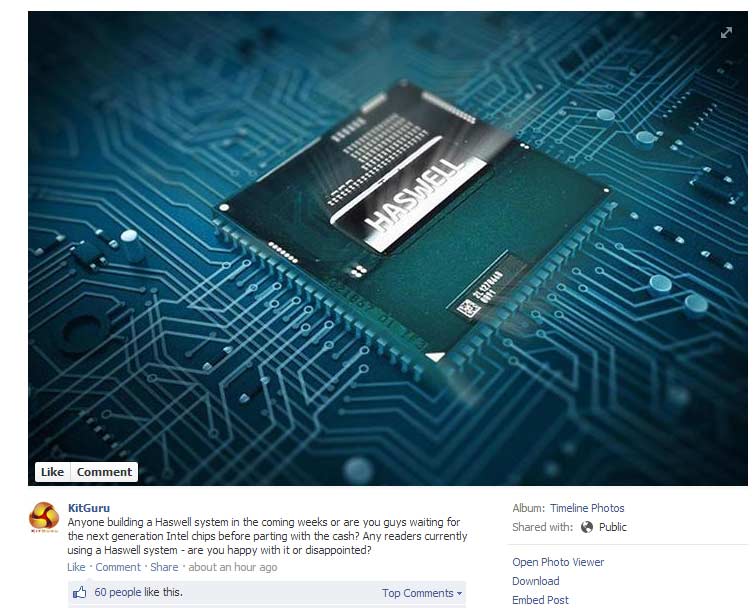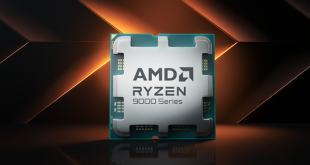Intel's Haswell line of CPUs has been out for a while now, but unlike previous generations of Intel chips that blew away the competition (it's been a long time since AMD really nipped at Intel's heels) Haswell didn't make such a big splash. It wasn't because of its default performance though, but its overclocking potential. Early iterations struggled to hit the same performance extremes as Sandybridge and Ivybridge hardware, partly it seemed because of how hot it would run; especially when you upped the vcore to squeeze out a few extra cycles on the clock.
With rumours that a new refresh of the Haswell line isn't too far away (Q1 or Q2 this year) the question we're asking our readers today is, what do you think of Haswell?

Click the image above to head to our Facebook page and tell us just what you think of Intel's current-gen chips.
We've got some great discussion going on over there, including resident Haswell overclocker, Eric Lin, who linked us through to his excellent spreadsheet of over 100 Haswell overclockers and their results. It seems you can hit very extreme clocks with the chips, but you'll need good cooling and a lot of patience. Don't expect to go into a Haswell OC lightly, there's more to do than up the Vcore and play with the multiplier.
There is some luck involved he says, but if you get it right, your Haswell has the chance to beat out Sandy and Ivy chips on a per-core performance basis, but make sure you have a way of dissipating that heat.
The question is, if you haven't hopped onto the Haswell bandwagon yet, do you plan to when it refreshes?
KitGuru Says: Do you agree with Eric? Or is he full of bunk? Let us know over at the KG Facebook page.
 KitGuru KitGuru.net – Tech News | Hardware News | Hardware Reviews | IOS | Mobile | Gaming | Graphics Cards
KitGuru KitGuru.net – Tech News | Hardware News | Hardware Reviews | IOS | Mobile | Gaming | Graphics Cards



I agree 100% with Eric Lin on his analysis. 😉
For those of you wondering, the three most important points about Haswell compared to other Intel OCing are:
1. Uncore is secondary in performance impact. Set it to stock while overclocking the core. Once core is done, then proceed to overclock uncore but do not overclock both at the same exact time when starting out and do not give up core multiplier for uncore multiplier.
2. Do not stress on adaptive voltage. If you stress with a synthetic, your voltage will SKYROCKET. This is NOT SAFE. I do not recommend adaptive voltage to anybody.
3. When your Vcore is getting high, 1.35 and higher, your Input Voltage aka Vrin aka VCCIN begins to play a role. Think of the input voltage as the combined voltage for the entire chip, it has to be higher than any other voltage. If your Vcore is high and your input voltage isn’t high enough relative to your Vcore, you will never find stability even if you ramp up from 1.4 to 1.5v.
This is my short and simple pointers on the differences between Haswell OC vs Sandy OC. Of course, fine tuning and other small points exist.